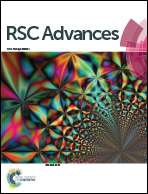Computational approaches to understanding reaction outcomes of organic processes in ionic liquids
Abstract
This review considers how various computational methods have been applied to explain the changes in reaction outcome on moving from a molecular to an ionic liquid solvent. Initially, different conceptual approaches to modelling ionic liquids are discussed, followed by a consideration of the limitations and constraints of these approaches. A series of case studies demonstrating the utility of computational approaches to explain processes in ionic liquids are considered; some of these address the solubility of species in ionic liquids while others examine classes of reaction where the outcome in ionic liquids can be explained through the application of computational approaches. Overall, the utility of computational methods to explain, and potentially predict, the effect of ionic liquids on reaction outcome is demonstrated.

- This article is part of the themed collection: Ionic Liquids: Editors collection for RSC Advances

 Please wait while we load your content...
Please wait while we load your content...